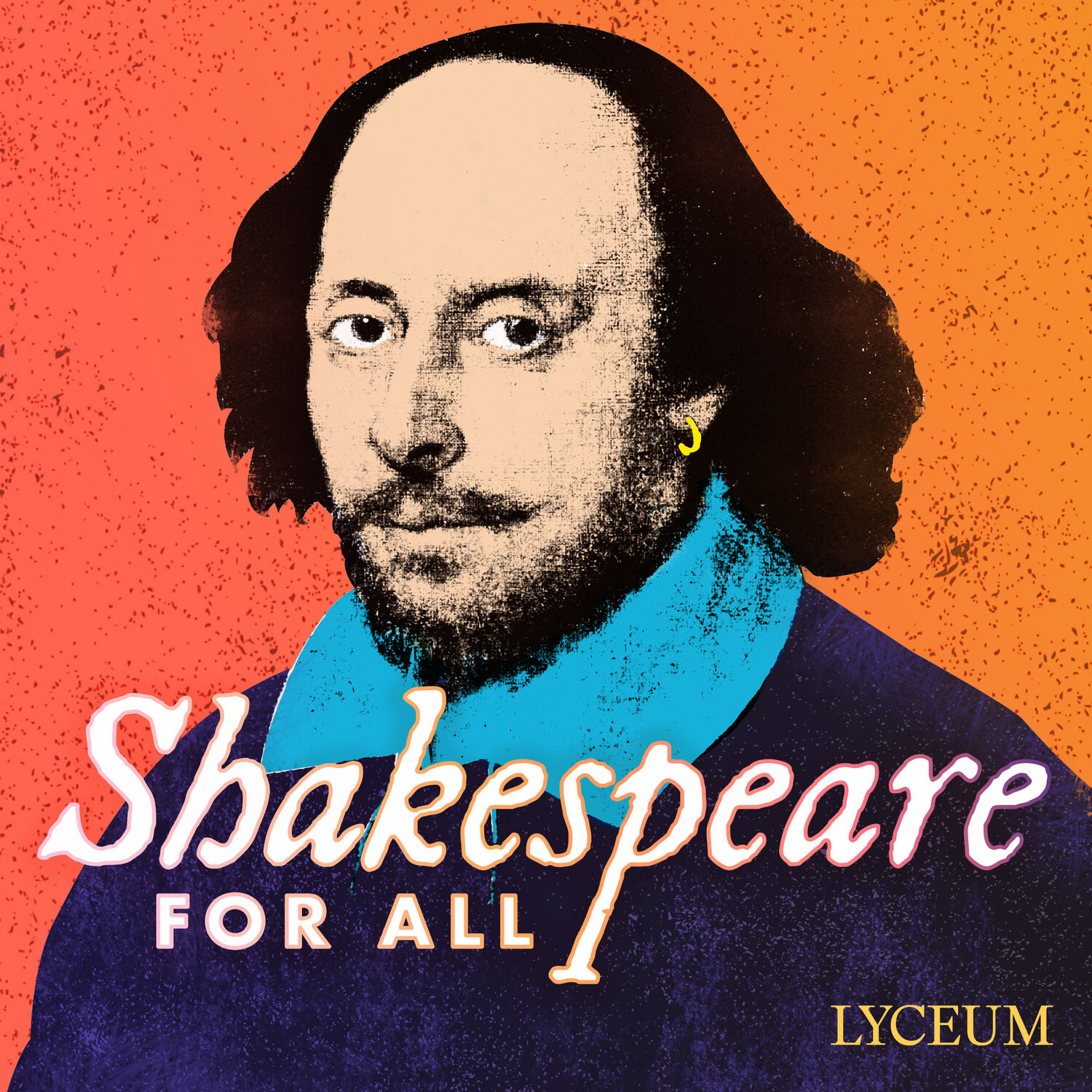Cymbeline
“THE HAPPIER TO ARISE”
What You'll Learn
The story of Cymbeline and its context
How this mythical romance plot engages with key events in world history
How romance and history combine to produce unexpected renewal in this play-world
Course Outline
Episode 1: Summary of the play with historical and cultural context
Episode 2: Analysis of the play’s representation of history and its tragicomic arc from crisis to peace
Episode 3: Actors’ recordings of key speeches from the play and discussion of those speeches
Works Consulted for this Course
Bickley, Pamela and Jenny Stevens. "Cymbeline: ‘An experimental romance’?" in Pamela Bickley and Jenny Stevens. Essential Shakespeare: The Arden Guide to Text and Interpretation. London: Bloomsbury Publishing, 2013.
Garber, Marjorie B. Shakespeare After All. New York: Pantheon Books, 2004.
Howard, Jean E. “Introduction,” Cymbeline, in Shakespeare, William. The Norton Shakespeare. Edited by Stephen Greenblatt, Walter Cohen, Suzanne Gossett, Jean E. Howard, Katharine Eisaman Maus and Gordon McMullan. 3rd ed. New York: W. W. Norton & Company, 2016.
Marshall, Cynthia. “A Modern Perspective: Cymbeline.” Folger Shakespeare Library. <https://shakespeare.folger.edu/shakespeares-works/cymbeline/cymbeline-a-modern-perspective/>
Miola, Robert S. “‘Wrying but a little’? Marriage, punishment, and forgiveness in Cymbeline,” in Shakespeare and Renaissance Ethics. Edited by Patrick Gray and John D Cox. Cambridge: Cambridge University Press, 2014.
Shakespeare, William. Cymbeline. Edited by Martin Butler. The New Cambridge Shakespeare. Cambridge: Cambridge University Press, 2005.
Shakespeare, William. Cymbeline. Edited by Valerie Wayne. London: Bloomsbury Arden Shakespeare, 2017.
Cymbeline is an epic romance that spans British history, the Roman Empire, religious epochs, and the central themes of Shakespeare’s career. Set in ancient Britain at the time of Augustus Caesar’s reign, it begins with two plotlines that in other of Shakespeare’s plays lead to tragedy: an enraged king disowns a beloved daughter, and a faithful wife is accused of betrayal by a jealous husband. In Cymbeline, however, the generic conventions of tragicomedy, symbolic sites from Britain’s past, and a time-setting that contains a transformational spiritual event, combine to bring unexpected recovery and renewal out of these tragic beginnings. In this course, you’ll learn the story of Cymbeline, see how Shakespeare brings its characters toward unexpected moral change, and discover how this fantastical play represents the origins of some of the most significant shaping forces in his historical world and ours.
In Part 1, you’ll be guided through a detailed account of the story with commentary by Will Tosh, Head of Research at Shakespeare’s Globe, London. This episode discusses the structure, settings, and sources of the play and recounts the story using the language of the play itself, placing key quotations in context to help you understand where these lines come from and what they mean.
Part 2 begins with a discussion of the sexual violence and jealousy depicted in the play. It goes on to examine how the play’s sprawling romance plot represents, in symbolic but recognizable form, origin stories for some significant historical phenomena: Britain’s own monarchy, the Renaissance culture of Europe, and what would have been for Shakespeare’s audience the central event of world history: the birth of Christ. It concludes by discussing how these historical forces shape the unexpected moments of spiritual vision, repentance, and peace that conclude the play, and why the play’s particular vision of communities coexisting might be its most powerful legacy for the 21st century.
Part 3 features close-readings of three key speeches that reflect together the central structuring element of the story: how characters fall in order to rise.
You can hear the third episode of this course for free below. For access to the full course and all of Season Two, subscribe today on Himalaya Learning. Use the promo code BARD for 30 days free.
Speeches and Performers
Iachimo, Act 2, “The crickets sing …” (Mark Quartley and Donald Sumpter)
Imogen, Act 3, “Why, I must die…” (Gabrielle Sheppard)
Posthumus, Act 5, “Yea, bloody cloth…” (Stuart Vincent)
Course Instructor
Dr. Will Tosh
Head of Research at Shakespeare’s Globe, London
Dr. Will Tosh is Head of Research at Shakespeare’s Globe, London. He coordinates the Globe’s on-going Research in Action series of public workshops, and he led the Indoor Performance Practice Project, which examined playing in the candle-lit Sam Wanamaker Playhouse. This project was the basis of his second book, Playing Indoors: Staging Early Modern Drama in the Sam Wanamaker Playhouse (Bloomsbury, 2018). Dr. Tosh also researches the rhetoric and application of Renaissance theories of ‘perfect’ friendship, the subject of his first book, Male Friendship and Testimonies of Love in Shakespeare’s England (Palgrave Macmillan, 2016). He is currently working on Straight Acting: The Many Queer Lives of William Shakespeare, to be published by Sceptre (UK) and Basic (US) in 2023.



